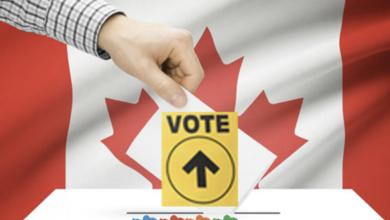Online registry aims to connect Nova Scotians with sexual, gender and reproductive health services

Sexual Health Nova Scotia has launched a registry in hopes of connecting people with sexual, gender and reproductive health services across the province.
SUGAR Health, which launched late last week, is an online resource tool that lists services, such as abortion support, gender-affirming support, pap testing and sexually transmitted infection (STI) testing.
Leigh Heide, project manager of SUGAR Health, said the online registry was created in response to continued questions from community members regarding accessing services and resources.
“This is really a response to what we’ve heard from the community for years,” Heide said in an interview Tuesday.
Heide said the need for an online registry was highlighted during the pandemic when Nova Scotia Health’s STI testing clinic in Halifax closed, resulting in people without a family doctor unsure of where to get an STI test.
“So, with that being closed during the pandemic, we had so many folks, exponentially more, reaching out and asking how to get tested, so that stepped up our thought around responding in some way,” Heide said.
Heide said the small team of four at Sexual Health Nova Scotia compiled a list of where people could seek sexual, gender and reproductive health services across Nova Scotia.
After months of Googling, talking with different associations and care providers and community consultation, the SUGAR Health registry was born.
People seeking specific sexual, gender and reproductive health services are able to log onto sugarhealth.ca and find the clinic closest to them that offers the health care they need. The website also lists other services the clinic offers, its hours and contact information.
YourHealthNS, a similar mobile app and website dedicated to connecting people with other health-care services such as primary-care clinics, was released by the province on the first of November.
For people who are unsure about what services they may need or who have questions, SUGAR Health is accompanied by a warmline, which allows people to speak with a navigator via a phone call, text, Facebook message or WhatsApp message.
“We felt that in recognition of how complicated people’s lives are that there would need to be another way to kind of give folks that wraparound support, so that they’re not just looking at a website,” Heide said of the warmline.
For now, people will be able to contact the warmline from 9 a.m. to 5 p.m. on Monday, Wednesday and Friday, from noon to 8 p.m. on Tuesday and Thursday and from 9 a.m. to 1 p.m. on Saturday.
However, Heide stressed the warmline is not a crisis line and is not intended to replace therapeutic support. People seeking emergency care or are in a crisis are to call the provincial mental health and addictions crisis line (1-888-429-8167) or 911.
Heide said the project, which received one year of funding from Health Canada, will continue to see additions to the registry, as well as tweaks to some listings.
“With such a short timeline, we wanted to get it launched so people would have time to use it, so we have to narrow down who we were including in our providers for our first round of research before the launch,” Heide said.
Heide said currently, the registry only lists organizations that provide clinical sexual health services. However, they said research is already underway to add organizations that offer supports, counselling, community awareness and education.
“We know the barriers people face are often around those pieces, so we want to make sure that all of those organizations are captured in the registry as well,” Heide said.
Heide said there have been both positive and negative realizations stemming from the creation of the registry.
Heide said they were pleasantly surprised to see “a lot more” providers offering gender-affirming care in Nova Scotia than they expected.
“This is really a response to what we’ve heard from the community for years.”
– Leigh Heide
However, the registry and accompanying map of each service highlighted gaps in rural areas.
“There needs to be a real recognition of what folks are really facing in rural communities that impacts their ability,” Heide said.
Heide said the Halifax Sexual Health Centre receives calls every day from people in Cape Breton or Yarmouth who are willing to drive four hours to get an STI test because it’s the only accessible service to them or the only service they’re aware of.
“This project was to help folks access the services they need, 100 per cent, that’s the impetus for it,” Heide said. “But it highlights some of these issues and patterns that hopefully we, our government and community organizations together can work collaboratively on solutions.”
Heide encouraged people, including providers, to fill out the form on the website if information about a service has been missed or needs to be modified.





